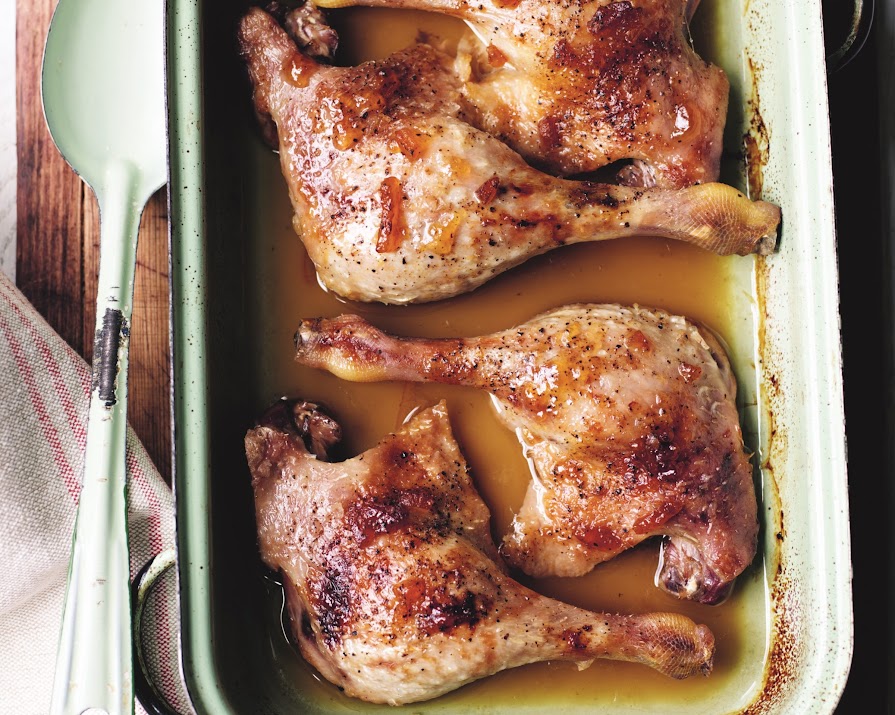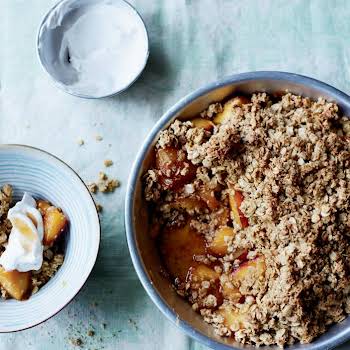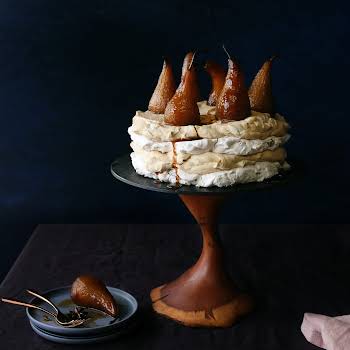By Meg Walker
23rd Sep 2023
23rd Sep 2023
Looking for a tasty weekend feast to whip up for friends and family? This is perfect.
The orange flavourings can also be used to marinate portions of duck.
Slow-roast duck legs with marmalade
Serves 4
Ingredients
- 4 duck legs
- 1 generous tbsp bitter orange marmalade
- juice of 1 (sweet) orange
- juice of 1 lemon
- a little stock (optional)
- salt and pepper
Method
- Put the duck legs in an ovenproof dish that holds them neatly.
- Mix the marmalade, orange and lemon juices, and pour over the duck. Cover and leave in the refrigerator to marinate for 24 hours. Stir from time to time to make sure the duck is well coated with marinade.
- Cook the duck legs at 140°C/gas mark 1 for 1¾ hours, turning them after 1 hour. About 15 minutes before the end of cooking time, pour the fat and cooking juices into a bowl and turn up the heat to 170°C/gas mark 3 to crisp the skin.
- When the duck legs are ready, remove them to a serving plate. Skim the fat off the reserved cooking juices and use the latter to deglaze the roasting dish (you may want to add a little stock or water to help the process along, but don’t overdo it – there should be a relatively small quantity of thin, concentrated gravy).
- Taste, adjust the seasoning, and serve.

Extracted from Roasts by Laura Mason (National Trust Books). Photograph by Tara Fisher.























